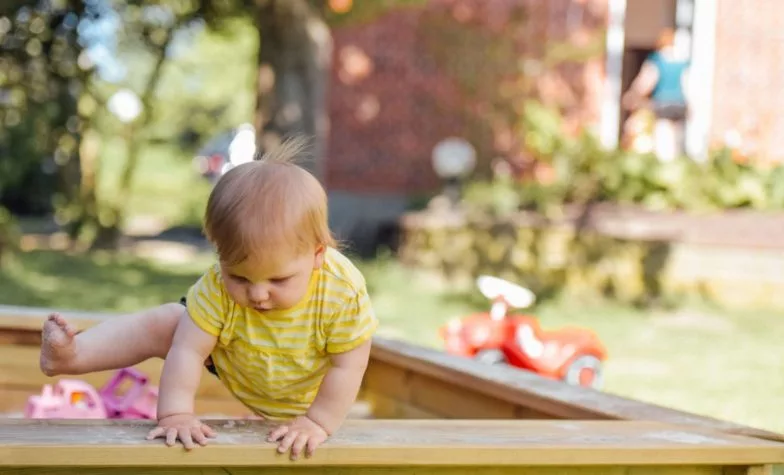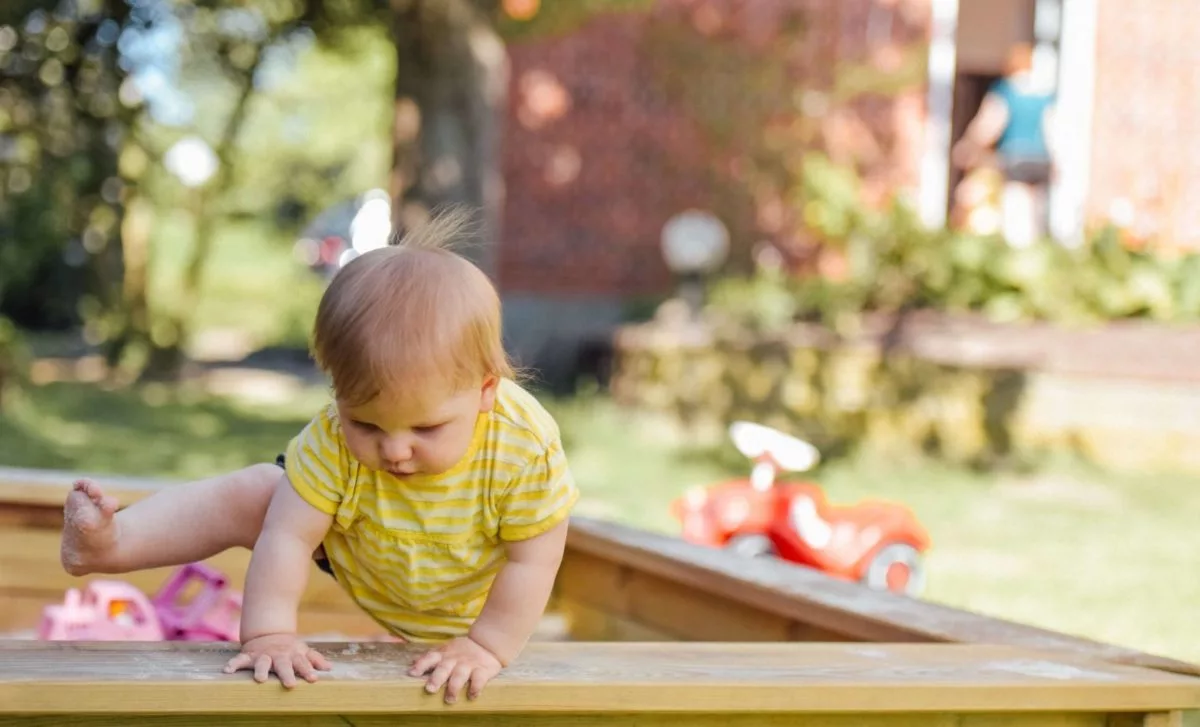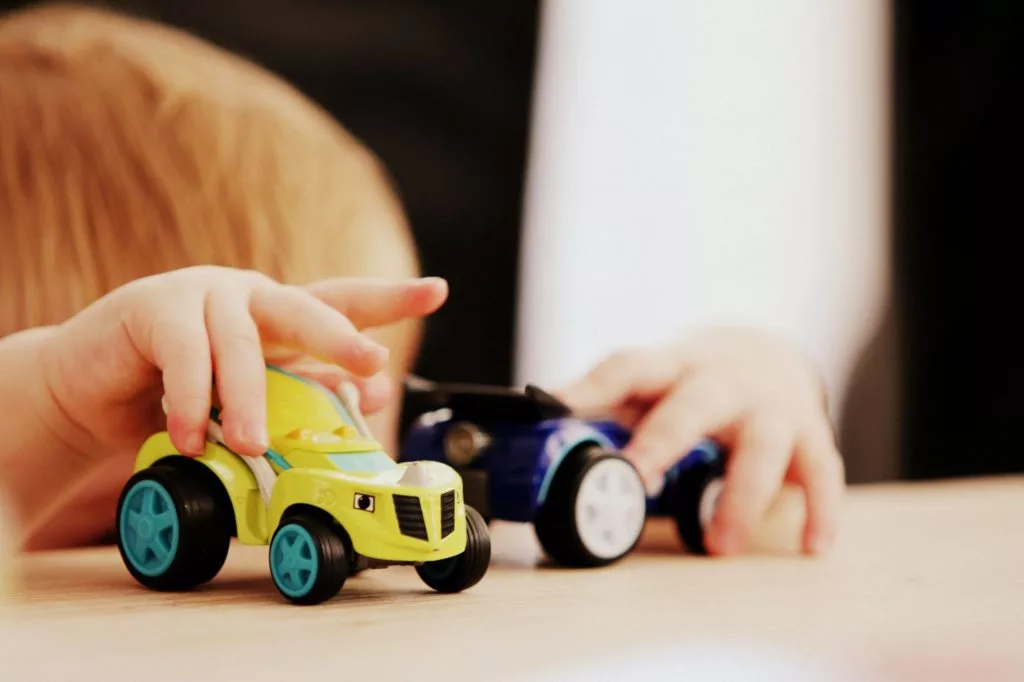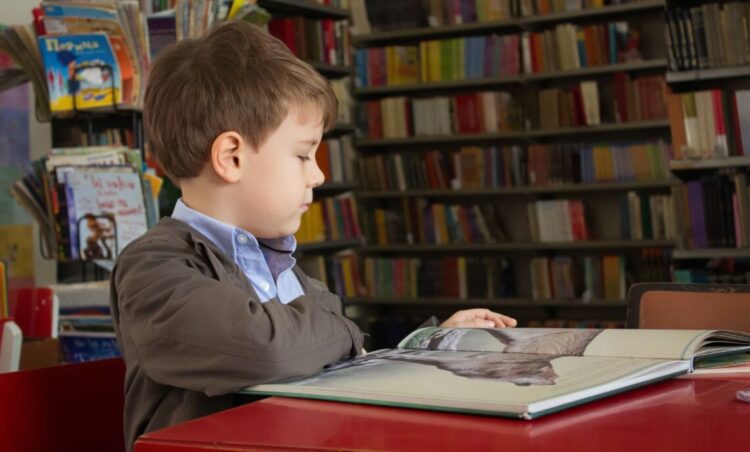Child Developmental Milestones: A Checklist for Babies & Toddlers


What is a Developmental Milestone?
Developmental Milestones are usually recognised as guides for tracking a child’s development. They can be ordered into certain groupings, based on physical, emotional, social, cognitive and language development. Below are some terms associated with these milestones:
- Gross motor skills (larger body movements). This focuses on large muscle control and coordination – actions like sitting, running and walking.
- Fine motor skills (smaller body movements). This focuses on small muscle control and coordination – actions like holding small objects and picking things up.
- Hearing focuses on the child’s ability to hear, listen and understand any sounds.
- Vision focuses on the ability to see and understand what is being seen.
- Speech and Language focuses on the formation of words and knowing how to make the sounds and understand the sounds that form these words.
- Social behaviour focuses on the ability to interact with others and to learn from these interactions. This covers the skills used in connection, communication and play.
In most cases, development will happen in a similar order. However, it is quite common for skills to develop at a different time for each child. For example, children usually stand before they walk though this progression can occur any time from around 8 to 18 months.
Developmental Milestones in Babies
Babies develop at an incredible rate during the first 12 months. They are learning to move, to communicate, to feed and to express their emotions among many other new learnings. This learning happens through interactions, relationships and play.
Below are a few key developmental milestones or markers:
- Moves whole body, squirms, arms and legs wriggle
- Grasps objects put into hands and begins to reach for objects
- Head turns to side
- Eyes close in bright light
- Responds to touch
- Cries when hungry or uncomfortable, sometimes stops when held
- Cries (peaks about six to eight weeks and begins to level around 12-14 weeks)
- Bonds with familiar carers
- Can make eye contact when held close
- Can be soothed by low constant sound or voice
- Is startled by unexpected noise
- Gurgles and coos
- Moves head to sound of voices and responds to faces
- Smiles and laughs
When should I seek help with my baby’s development?
There are a few key checks that can help you to decide when to find extra support. If your baby appears to have lost some skills over time or if you see delays in some of these areas, seek advice from your health professional or speak to your child’s campus director about having a consultation or screening from our Speech Pathologist, Occupational Therapist or Dietitian.
Some things to look for:
- Doesn’t move or struggles to use both arms and legs
- Can’t hold their head up by the time they’re 3-4 months
- Can’t sit well by around 10 months
- Doesn’t appear to hear or see properly
- Isn’t trying to stand up by 12 months (even with help)
- Has a cry that seems strange to you (ie a high-pitched squeal)
- Cries a lot, every day, especially after 3-4 months (it’s normal for babies to cry for about two hours in total a day, with crying peaking at 6-8 weeks)
- Doesn’t seem interested in their surrounds at all
- Isn’t responding to sounds
- Isn’t making babbling sounds when very young, or attempting speech by around 18 months
- Doesn’t look at you
- Is floppy or stiff or arches back often
Developmental Milestones in Toddlers
Toddlers have a lot going on in their lives! From the age of 2 to 3 years, toddlers will begin to experience lots of emotions and try out tantrums. Toddlers will engage in play, learn more about language and develop more thinking abilities. They will usually begin to do more things for themselves.
Again, these developments can come at different times for each child. The below can help as a guide to toddler developmental milestones. If you’re ever unsure of something, don’t hesitate to ask your trusted Educator or your health professional.
- Enjoys play – pretend play, playing with others, painting and storytelling, singing and reading, among other activities.
- Learning about others’ feelings, expressing their stronger emotions (sometimes tantrums), learning how their actions affect others, less separation anxiety.
- Around 2 years – may be able to use 2-3 word sentences, often easier to understand as they learn more words and test them out.
- Around 3 years – able to use 3-5 word sentences, able to have a small conversation and learning how to take turns speaking, able to talk about their day and tell a simple story with some help and guidance from a caregiver.
- Learning to understand certain concepts, like opposites and time – for example, they might make the distinction between day and night or big and small.
- Beginning to display problem solving skills, able to point out certain objects, colours and shapes and remembering what some objects look like.
- Learning independence, though needing help – can likely feed themselves, wash their hands and may even try to dress themselves.
- Some might be ready to start toilet training – toilet training can be one of the most difficult things for a child to learn. For more details on this see our article: When & How to Start the Toilet Training Process.
- May be able to run – learning to throw, kick and catch a ball.
- Balance will usually be improving, and they will be learning to walk up and down stairs on their own.
Families will often be ‘childproofing’ their home, at this point, making it safer for a faster moving child!

When should I ask for help with my toddler’s development?
Sometimes a family may have concerns or notice that there are some developmental delays. If your toddler displays any of the following issues, see your GP or health professional for further advice or talk to your Campus Director about how our in-house Health Team can support.
At 2 years:
- Trouble seeing or hearing
- Not showing any emotions
- Difficulty holding small objects (like crayons)
- Not trying to draw or scribble
- Unable to walk up and down stairs, even with support
- Can’t run
- Difficulty putting two words together
- Difficulty following simple instructions, like “Please give me the ball”
- Struggling to copy basic actions or words
- Doesn’t pretend when playing
At 3 years:
- Can’t look you in the eye
- Struggles to use 3-word sentences or hard to understand when talking with familiar people
- Difficulty seeing or hearing
- Doesn’t understand simple instructions
- Can’t run
- Has difficulty handling small objects (like crayons)
- Not drawing or scribbling
- Doesn’t know how to pretend play
- Not interested in other children
- Struggles to separate from primary caregiver
It’s important to remember that milestones are simply markers, or guides, for child development. Every child is unique and will develop at a different pace to others. The above examples can be used as a general guide to help understand their developments a little more.
If you have any concerns or questions about these points it’s important to seek advice from your health professional or talk with your Campus Director about whether our in-house Health Team can guide you.
Learn more to prepare for Your Child’s First Day At Childcare.
Plus, for more great reading see:
When & How To Start The Process Of Toilet Training
How Much Physical Activity Does My Child Really Need?
Only About Children can help your child to grow, make friends and explore the world.
Only About Children can help your child to grow, make friends and explore the world.
Related Reads


Advice For Selecting The Best Primary School For Your Child
Starting school for the first time is a huge moment in the life of your child, but also for you and your family! Finding the school that is the right fit for your family can be the first hurdle in this process. Here are some helpful tips to ensure that you choose the school that is the right one for you and your child:

The 5 Biggest Changes Starting “Big School”
The change from a prior to school setting to a primary school setting can be daunting and take some getting used to in the early weeks and months of your child starting. Here are some of the 5 biggest changes to expect when moving to primary school
